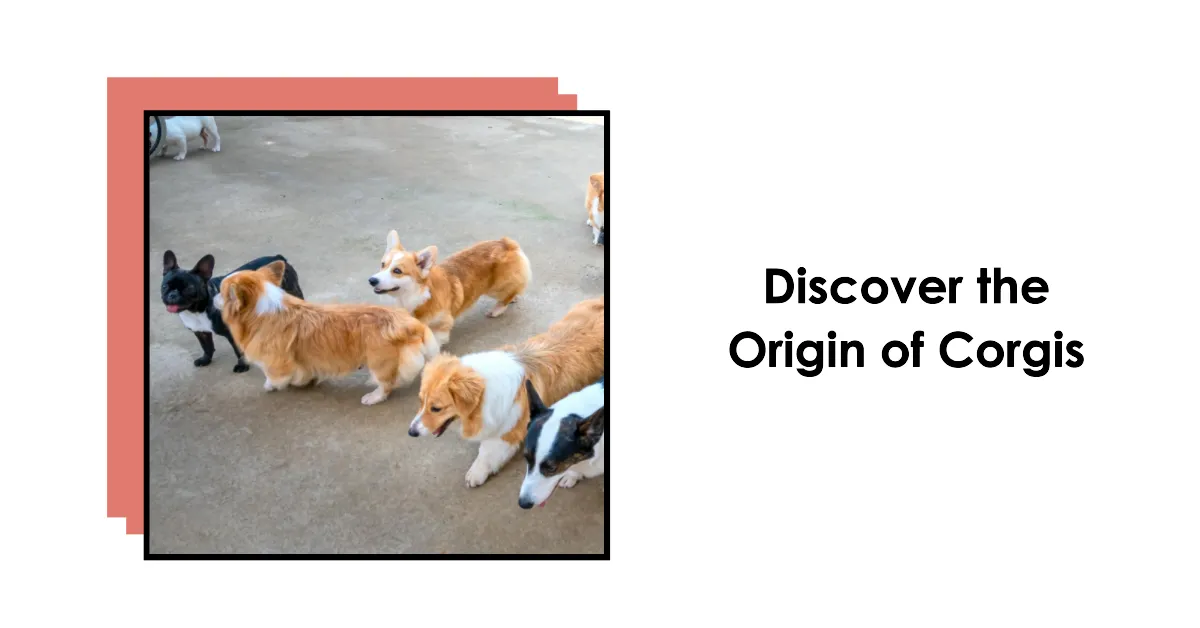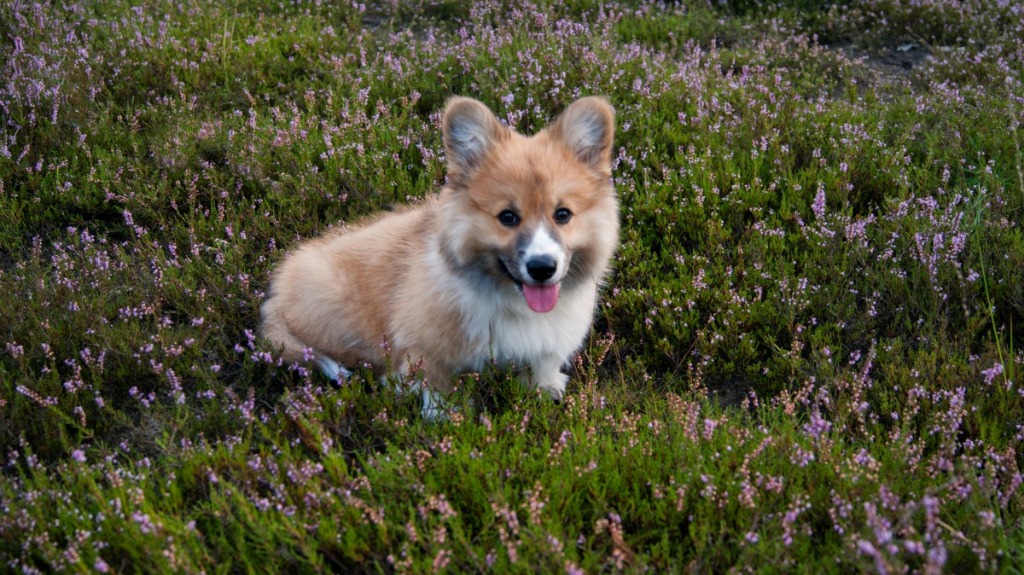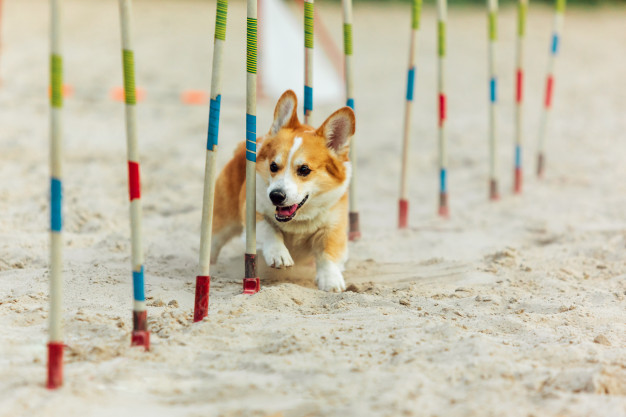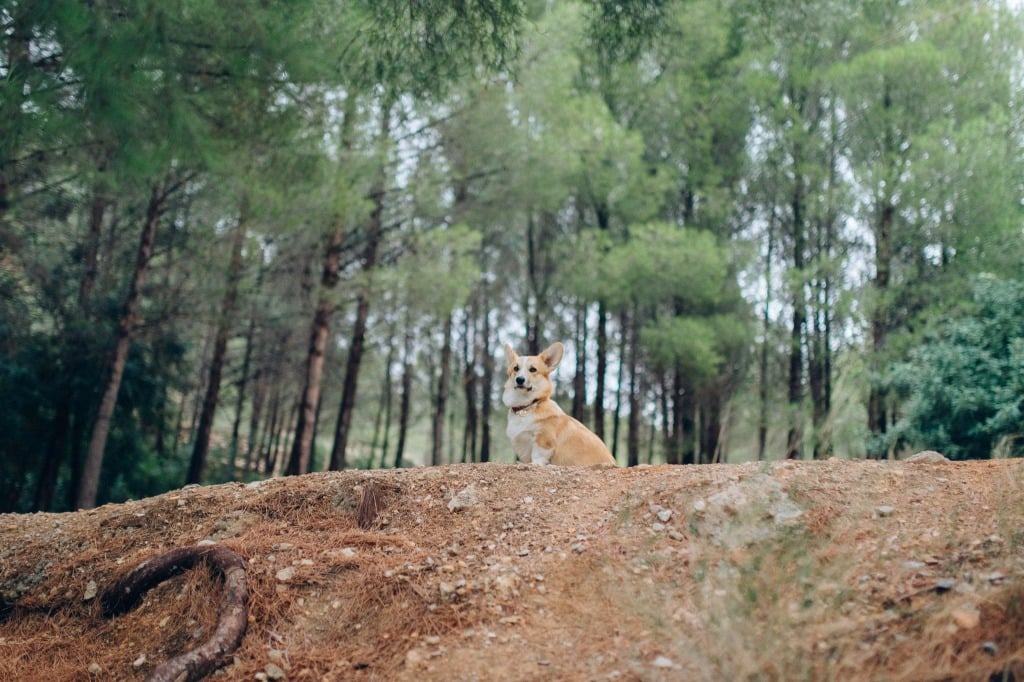The Dos and Donts of Corgi Daily Walks

Do you want to ensure that your daily walks with your beloved Corgi are safe and enjoyable?
Well, look no further! In this guide, we will dive into the dos and donts of Corgi daily walks to help you navigate the world of canine companionship with confidence.
From proper leash handling to choosing the right walking routes, we will cover all the essential tips and tricks to keep your furry friend happy and healthy.
So, grab your leash and let's get started on this adventure together. Your Corgi will thank you for it!
Proper Leash Handling
To ensure a successful and enjoyable walk with your Corgi, it's essential to master proper leash handling techniques.
One of the first things you need to consider is the proper leash length. A leash that's too short can restrict your Corgi's movement and make them feel uncomfortable, while a leash that's too long can result in them getting tangled or potentially running away. Aim for a leash length that allows your Corgi to walk comfortably beside you, without pulling or dragging behind.
Additionally, leash training techniques are crucial for a well-behaved Corgi on walks. Teach your Corgi to walk by your side without pulling, using positive reinforcement and consistent commands.
Choosing the Right Walking Routes
When choosing the right walking routes for your Corgi, consider their energy level, preferences, and the surrounding environment.
It's important to keep your furry friend safe while enjoying their daily walks.
If your Corgi has a lot of energy to burn, opt for scenic trails or parks with open spaces where they can run and play. These routes will provide mental stimulation and allow your Corgi to explore their surroundings.
On the other hand, if your Corgi prefers a more relaxed walk, urban sidewalks can be a great choice. Just make sure to choose routes with less traffic and noise to keep your pup calm and comfortable.
Remember, the key is to find a route that suits your Corgi's needs and ensures their safety.
Happy walking!
Understanding Corgi's Exercise Needs
Consider your Corgi's exercise needs as you choose the right walking routes, taking into account their energy level, preferences, and the surrounding environment. Corgis are active dogs that require regular exercise to keep them healthy and happy.
It's important to establish a consistent corgi exercise schedule to ensure they get the physical activity they need. Daily walks are a great way to fulfill their exercise requirements and provide mental stimulation. However, it's crucial to prevent joint problems by avoiding excessive high-impact activities, especially for older corgis. Opt for low-impact exercises like swimming or gentle jogging to protect their joints.
Additionally, be mindful of the weather conditions and adjust the intensity and duration of the walks accordingly. By understanding your corgi's exercise needs and taking necessary precautions, you can ensure their well-being and prevent any potential health issues.
Socialization With Other Dogs
Ready to take your Corgi on a socialization adventure? Playdates for Corgis can be a great way to introduce them to other dogs and help them develop their social skills.
Remember to maintain proper leash manners and etiquette during these interactions, ensuring a positive experience for both your Corgi and the other dogs.
If your Corgi displays fearful or reactive behavior towards other dogs, it's important to address these issues with professional guidance to ensure a safe and enjoyable socialization experience.
Playdates for Corgis
Arrange meetups with other dog owners to encourage your Corgi's socialization with different breeds. Corgi playdates are a great way to help your furry friend develop important social skills and build positive relationships with other dogs.
Organizing playgroups can be a fun and beneficial experience for both you and your Corgi. It allows them to interact and play with dogs of various sizes and temperaments, helping them become more adaptable and friendly.
When organizing these playdates, make sure to choose safe and secure locations, such as fenced-in dog parks or private yards. Always supervise the play and intervene if any signs of aggression or discomfort arise.
Remember to keep the playtime sessions short and gradually increase the duration as your Corgi becomes more comfortable. By providing opportunities for socialization, you're helping your Corgi become a well-rounded, happy, and confident companion.
Leash Manners and Etiquette
Encouraging your Corgi's socialization with other dogs includes practicing proper leash manners and etiquette when interacting with them. It's important to teach your furry friend how to behave on a leash to ensure a safe and enjoyable experience for both of you.
Leash pulling can be a common issue, but with consistent leash training, you can teach your Corgi to walk calmly beside you. Start by using a sturdy leash and harness that fits comfortably. When your Corgi starts pulling, stop and wait for them to calm down before continuing.
Reward them with treats and praise when they walk nicely by your side. Remember, the key is patience and positive reinforcement.
Fearful or Reactive Behavior
To ensure a positive experience for both you and your Corgi, it's important to address any fearful or reactive behavior when socializing with other dogs.
It's natural for some dogs to feel anxious or scared when encountering new furry friends, but there are ways to help them overcome their fears.
One effective technique is counter conditioning, which involves associating positive experiences with other dogs. For example, you can reward your Corgi with treats or praise whenever they remain calm and relaxed in the presence of another dog.
Another helpful method is desensitization exercises, where you gradually expose your Corgi to other dogs in a controlled and safe environment. Start with distant encounters and gradually decrease the distance over time.
Avoiding Overexertion and Fatigue
During your daily walks with your Corgi, it's important to pace yourself and your furry friend to prevent overexertion and fatigue.
Corgis may have short legs, but they've a lot of energy packed into their little bodies. To avoid muscle strain and ensure your Corgi's well-being, it's crucial to manage their energy levels effectively.
Start by setting a comfortable walking pace that suits both of you. Take breaks if needed, allowing your Corgi to rest and catch their breath.
Be mindful of the weather and adjust the duration and intensity of your walks accordingly. Remember, it's better to have shorter walks more frequently than one long, exhausting walk.
Being Aware of Weather Conditions
Check the weather conditions before taking your Corgi for a walk to ensure their safety and well-being. Weather safety is crucial for your furry friend, as different weather conditions can pose risks.
During hot summer months, be cautious of the temperature and avoid walking during the hottest parts of the day. Remember, Corgis are prone to overheating due to their double coats.
In winter, consider seasonal considerations such as frostbite and icy conditions. Protect your Corgi's paws with booties or apply paw balm to prevent irritation.
Rainy days can be slippery, so be mindful of slippery surfaces and use a raincoat for your Corgi if necessary.
Maintaining Consistent Walking Routines
Maintain a consistent walking routine for your Corgi to ensure their physical and mental well-being. Dogs thrive on routine, and regular exercise is essential for their overall health. By establishing a consistent walking schedule, you create a sense of structure and stability for your furry friend.
Consistency in walking not only helps to maintain your Corgi's physical fitness but also provides mental stimulation. Dogs love exploring new environments and encountering different scents. A regular walking routine allows them to engage their senses and satisfy their natural curiosity.
Incorporating training exercises during your walks is another great way to keep your Corgi mentally stimulated. Use this time to reinforce basic commands, practice leash manners, or even teach them new tricks. These exercises not only provide mental stimulation but also strengthen the bond between you and your Corgi.
Remember, safety should always be a priority during your walks. Stay vigilant, keep your Corgi on a leash, and be mindful of your surroundings.
Frequently Asked Questions
Can I Use a Retractable Leash for My Corgi's Daily Walks?
Yes, you can use a retractable leash for your corgi's daily walks. However, it's important to be aware of the risks involved. Consider using alternative leash options that provide more control and minimize the chances of accidents.
How Often Should I Change the Walking Routes for My Corgi?
Changing up your corgi's walking routes is a great idea! It keeps things exciting and helps them discover new smells and sights. Plus, exploring different areas reduces boredom and keeps their mind sharp. So go ahead, try new paths and enjoy the benefits!
What Are Some Signs That Indicate My Corgi Is Not Getting Enough Exercise?
If your corgi shows signs of restlessness, weight gain, or destructive behavior, it may not be getting enough exercise. Regular exercise routines are important for their physical and mental well-being. Keep them active and happy!
Is It Important for My Corgi to Socialize With Dogs of Different Sizes and Breeds?
It's super important for your corgi to socialize with dogs of different sizes and breeds. This helps them feel comfortable around all kinds of pups and can prevent any fear or aggression issues. Plus, it's just plain fun for them!
Can My Corgi Walk on Hot Pavement During the Summer Months?
During the summer months, it's important to consider whether it's safe for your corgi to walk on hot pavement. You want to prioritize their safety and avoid any discomfort or injuries.











